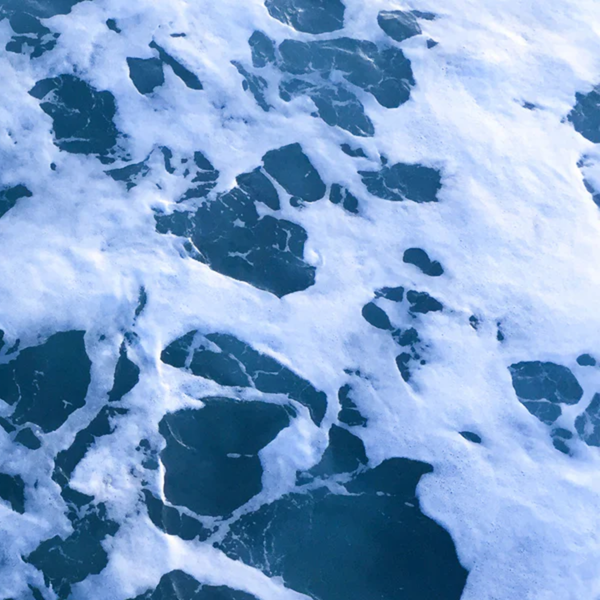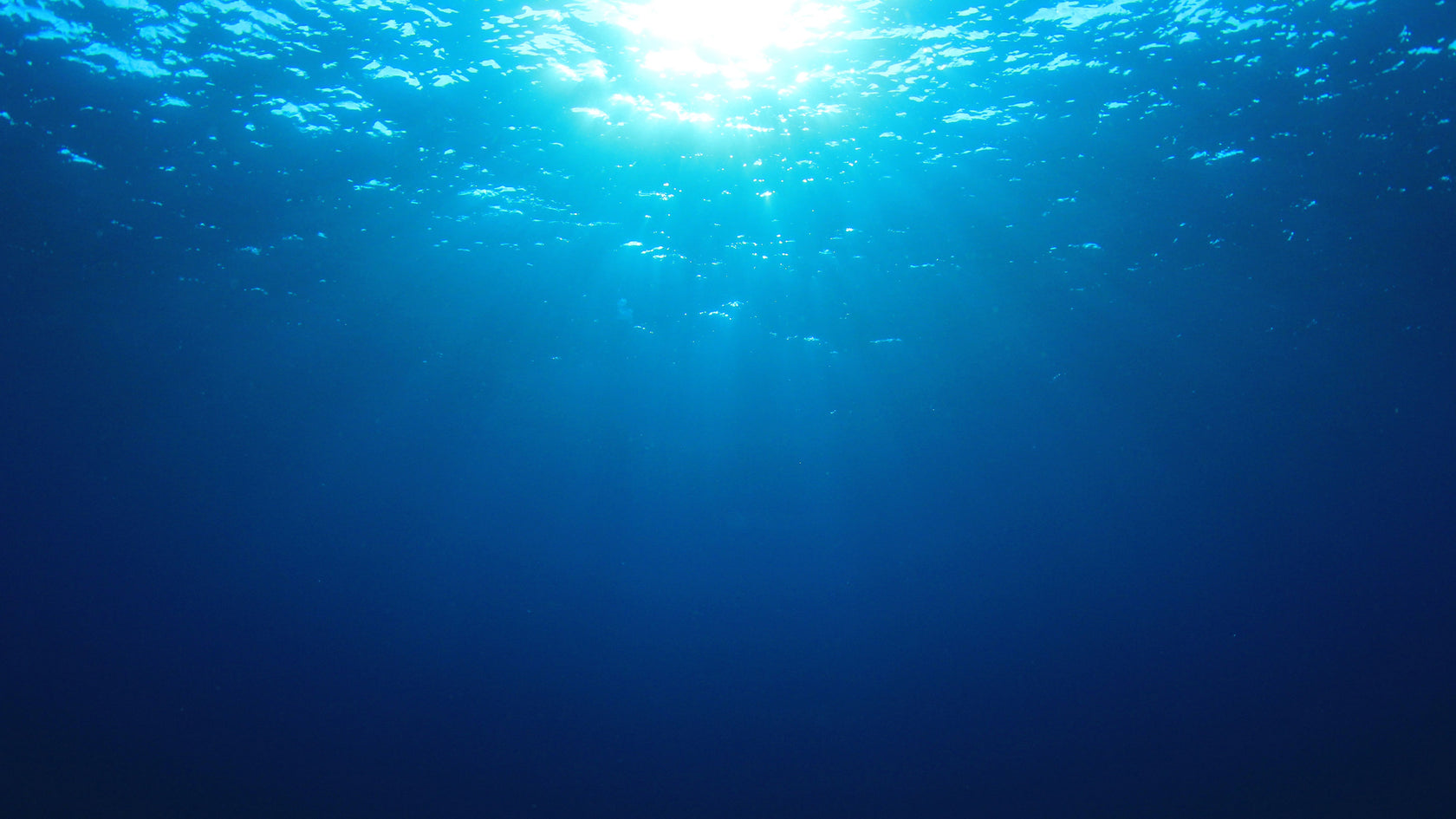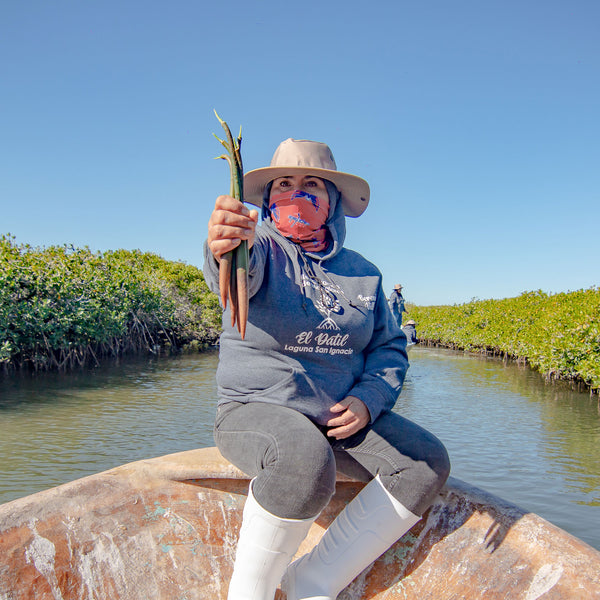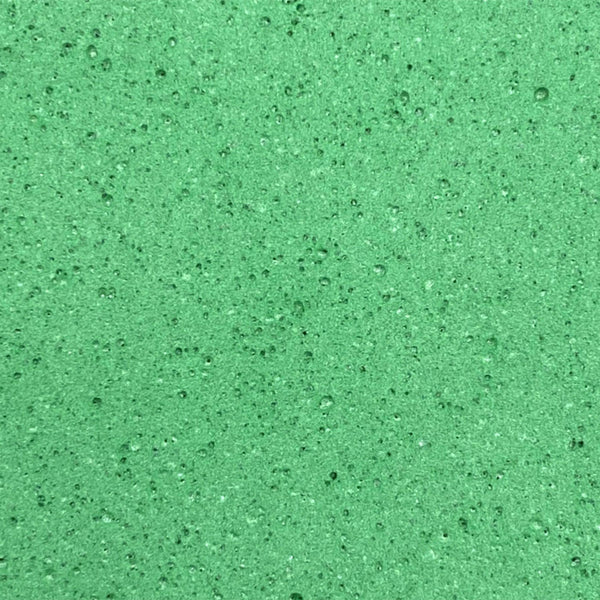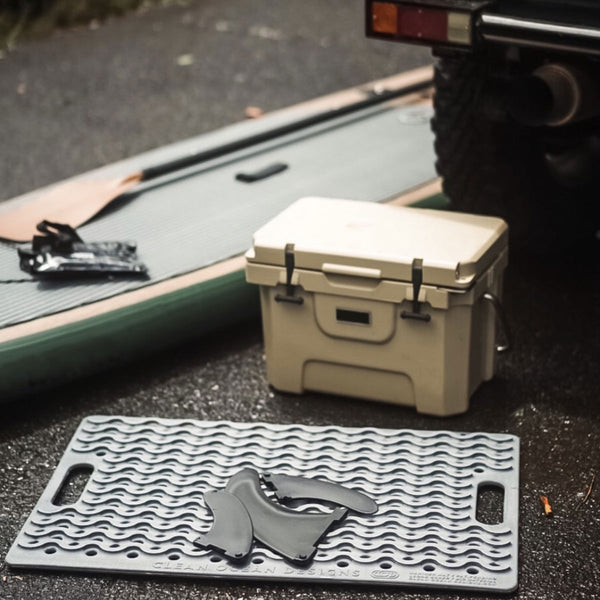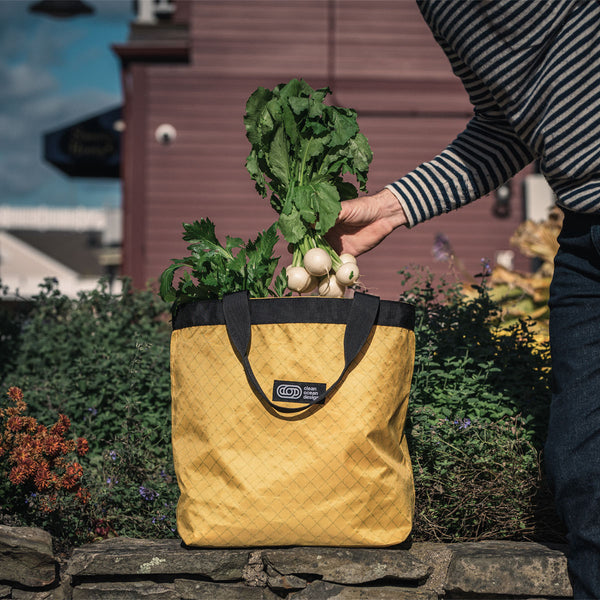At Clean Ocean Designs, we’re about having actual impacts on marine habitats and coastal communities.
When you use our products or spread the word, you’re supporting ocean health. Here’s how.
CLEAN WATER
1,128,048
LITERS OF WATER CLEANED AND RESTORED TO THE ENVIRONMENT THROUGH THE ALGAE USED IN OUR MARINER MAT
CLEAN AIR
1,168,992
CUBIC METERS
OF AIR CLEANED
852,464
GRAMS OF CARBON DIOXIDE SEQUESTERED
Positive Impact Report
Our marine and aquatic environments always come first at Clean Ocean Designs. Through our sustainable practices and innovative products we are doing our part to improve air and water quality with every product sold.
To date, our best selling Mariner Mat has achieved some monumental success with regards to its positive impact on the environment.
Restoring Mangroves to Counteract Climate Change
Mangrove Trees have superpowers when it comes to CO2 consumption, and by partnering with Sea Trees, we’re helping to plant and grow more of them in the El Dátil region of Laguna San Ignacio, Baja, Mexico.
90% of all carbon in the global carbon cycle is stored in the ocean, and this is where it should be sequestered to reverse climate change. Mangrove forests “suck” (aka sequester) 5-10x more CO2 out of the atmosphere per hectare than tropical rainforests. Much of that carbon is stored in the soil and sediment that make up a mangrove ecosystem, helping reverse the effects of climate change.
Maintaining Healthy Ecosystems By Using Algae
We have an algae problem. It’s a crucial part of marine ecosystems, but climate change has sparked algae overgrowth, which harms those ecosystems and has a ripple effect on others. BLOOM addresses this problem head-on by turning excess algae into useful materials, and we’ve partnered with them to use their BLOOM™ foam in our bestselling Mariner Mat.
Design Collaborations to Reduce Environmental Impacts
If you’re a brand or organization looking for more sustainable designs, we want to work with you. We’re passionate about our brand, but we’re also passionate about helping this planet. We welcome opportunities to share our experience with responsible manufacturing processes, material sourcing, and product designs so that we can make even more of an impact.
Upcycling Waterbottles Into Workable Materials
Around 85% of plastic water bottles in the U.S. become trash or litter according to the Container Recycling Institute. They pile up on beaches, pollute marine life, and release toxic chemicals into the air as they break down, contributing to the climate crisis. We help upcycle them by using ECOPAK™ fabric in multiple products.
1 yard of ECOPAK™ fabric upcycles ~ 20 plastic water bottles into workable material that’s waterproof and durable.
<div class="dynamic-checkout__content" id="dynamic-checkout-cart" data-shopify="dynamic-checkout-cart"> <shopify-accelerated-checkout-cart wallet-configs="[{"supports_subs":true,"supports_def_opts":false,"name":"shop_pay","wallet_params":{"shopId":50077499557,"merchantName":"Clean Ocean Designs","personalized":true}}]" access-token="7b7a8e948cebb73fb5243fd982c35250" buyer-country="US" buyer-locale="en" buyer-currency="USD" shop-id="50077499557" cart-id="7eccdbf0eb9022ecca3172df35cd2583" enabled-flags="["d6d12da0","32a68cd0","a1c7ccbe","ce346acf","c0874428"]" > <div class="wallet-button-wrapper"> <ul class='wallet-cart-grid wallet-cart-grid--skeleton' role="list" data-shopify-buttoncontainer="true"> <li data-testid='grid-cell' class='wallet-cart-button-container'><div class='wallet-cart-button wallet-cart-button__skeleton' role='button' disabled aria-hidden='true'> </div></li> </ul> </div> </shopify-accelerated-checkout-cart> <small id="shopify-buyer-consent" class="hidden" aria-hidden="true" data-consent-type="subscription"> One or more of the items in your cart is a recurring or deferred purchase. By continuing, I agree to the <span id="shopify-subscription-policy-button">cancellation policy</span> and authorize you to charge my payment method at the prices, frequency and dates listed on this page until my order is fulfilled or I cancel, if permitted. </small> </div>
